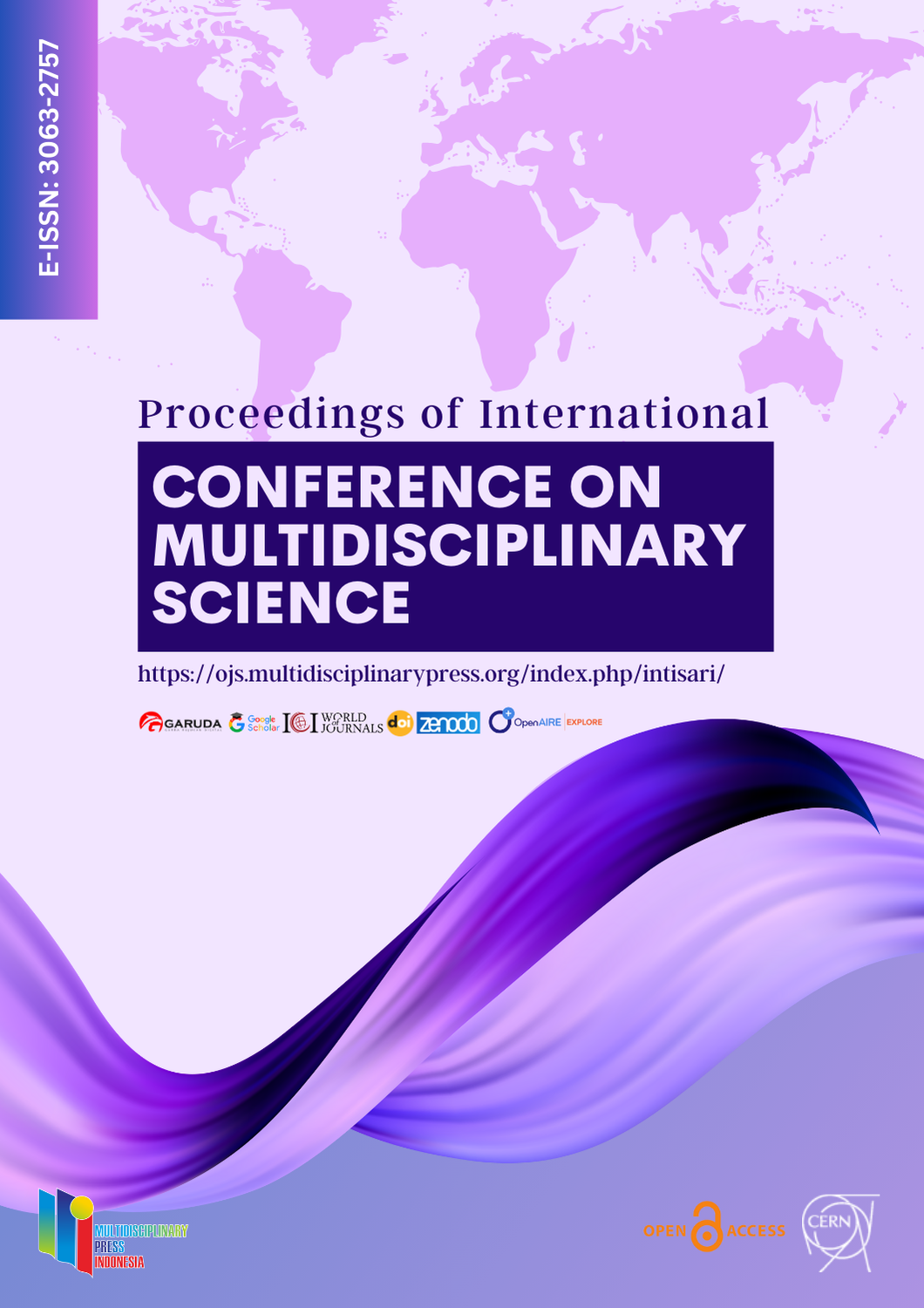Performance Optimization
Keywords:
Teamwork, Job Satisfaction, Role Conflict, PerformanceAbstract
Human resources are a very strategic and fundamental factor in an organization. Compared to other factors, human resources are the most valuable asset. The role of human resources will greatly determine the success or failure of the organization in achieving the vision and mission that has been set, therefore human resources are very important for the organization. Apart from determining success, the position of human resources in organizations today is not only as a means of production but also as a driver and determinant of the ongoing activities of the organization. The results of this research are as follows: Job Satisfaction has a positive and significant effect on Performance with original sample values of 0.246 and p values 0.000. Job Satisfaction has a positive and significant effect on Role Conflict with an original sample value of 0.545 and ap value of 0.000. Teamwork has a positive and significant effect on Performance with an original sample value of 0.268 and ap value of 0.004. Teamwork has a positive and significant effect on Role Conflict with an original sample value of 0.560 and ap value of 0.002. Role Conflict has a positive and significant effect on Performance with an original sample value of 0.446 and ap value of 0.000. Role Conflict has a positive and significant effect on Performance with an original sample value of 0.446 and ap value of 0.000. Job Satisfaction has a positive and significant effect on Performance through Role Conflict indirectly with an original sample value of 0.243 and ap value of 0.002. Teamwork has a positive and significant effect on performance through role conflict indirectly with an original sample value of 0.161 and ap value of 0.007.
Downloads
References
Fahmi, Irham. (2016). Manajemen Sumber Daya Manusia Teori dan Aplikasi. Bandung: PT.Alfabeta.
Ghozali, Imam, Hengky Latan. (2015). Konsep, Teknik, Aplikasi Menggunakan. Smart PLS 3.0 Untuk Penelitian Empiris. BP Undip. Semarang
Ghozali, Imam & Latan, Hengky (2017), Partial Least Square: Konsep, Metode, dan Aplikasi menggunakan program WarpPLS 5.0, Edisi ke-3, Semarang: Badan Penerbit Universitas Diponogoro
Hatta, M., & Et.al. (2017). Pengaruh Gaya Kepemimpinan, Kerjasama Tim dan Kompensasi terhadap Kepuasan Kerja serta Dampaknya pada Kinerja Karyawan PT. PLN (Persero) Wilayah Aceh,No Title. Jurnal Magister Manajemen Fakultas Ekonomi Dan Bisnis Unsyiah, 1(1), 72–73.
Handoko, T Hani. (2016). Manajemen. Edisi 2. Yogyakarta: BPFE-Yogyakarta.
Harahap, S. F., & Tirtayasa, S. (2020). Pengaruh Motivasi, Disiplin, Dan Kepuasan Kerja Terhadap Kinerja Karyawan Di PT. Angkasa Pura II (Persero) Kantor Cabang Kualanamu. Maneggio: Jurnal Ilmiah Magister Manajemen, 3(1), 120- 135.
Husain (2015) Penelitian bisnis dan manajemen menggunakan partial least squares (PLS) dengan smart PLS 3.0, Modul ajar jurusan manajemen fakultas ekonomi dan bisnis unversitas Brawijaya
Narimawati, Umi. (2018). “Metodologi Penelitian Kualitatif Dan Kuantitatif, Teori Dan Aplikasi.” Bandung: Agung Media 9.
Prawirosentono. (2019). Motivasi Dan Kinerja Pegawai. Indomedia Pustaka.. Sidoarjo
Rahmanendra, Dwi dan Suhardi, Eka. (2019). Peningkatan Komitmen Organisasi Melalui Pengembangan Budaya Organisasi dan Kepuasan Kerja. Jurnal Manajemen Pendidikan. 7(2): 852. ISSN 2302-0296
Purwanto, A., & Sudargini, Y. (2021). Partial Least Squares Structural Squation Modeling (PLS-SEM) Analysis for Social and Management Research : A Literature Review. Journal of Industrial Engineering & Management Research, 2(4), 114–123.
Robbins, Stephen P. (2016). Perilaku Organisasi. Jakarta Selatan : Salemba Empat.
Susanti et al. (2021). ‘Pengaruh Keterlibatan Kerja Karyawan, Loyalitas Kerja Dan Kerjasama Tim Terhadap Kinerja Karyawan CV. Sanitary Bali Pinangsia’, Jurnal EMAS, E-ISSN : 2774-3020.
Sugiyono. (2015). Metode Penelitian Kuantitatif, Kualitatif, dan R&D. Bandung : ALFABETA.
Sugiyono. (2019). Metodelogi Penelitian Kuantitatif dan Kualitatif Dan R&D. Bandung: ALFABETA.
Downloads
Published
How to Cite
Issue
Section
Categories
License
Copyright (c) 2024 Ibrahim Hasim Hasibuan, Kiki Farida Ferine

This work is licensed under a Creative Commons Attribution 4.0 International License.





